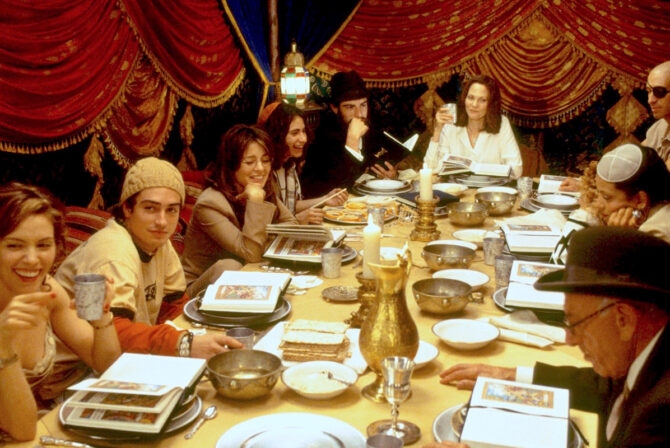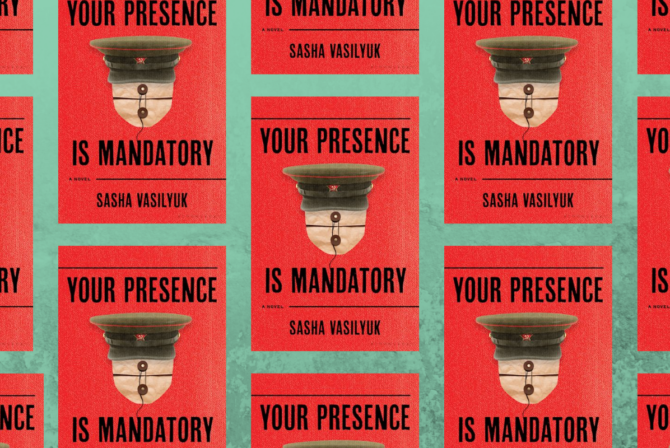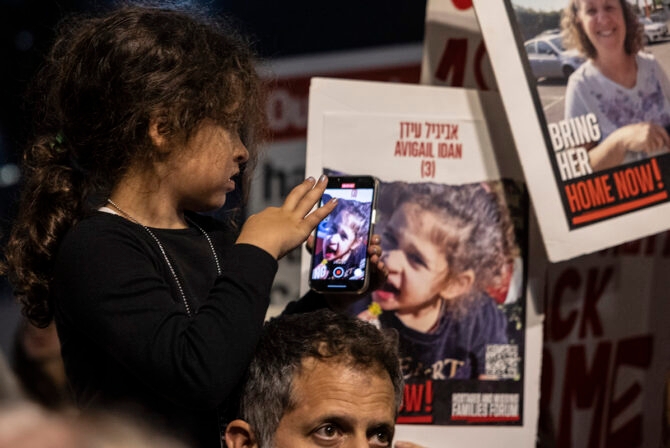Liran Bromberg (right) is an 18-year-old junior counselor at Ramah New England. Yishai Barth (left) is a high school senior who became friends with Liran at age 11, when Yishai was a camper in the inclusion program at Ramah. Here, they each share about their unique bond formed at Jewish camp.
Liran:
I was 11 years old and in my second year of summer camp when I met this kid with super powers. A nearly perfect memory, super hearing, and a brain that could solve complex problems of anything from theoretical physics to philosophy. The only problem was that I was the only one who seemed to have met him. Everyone else just met this oddball kid named Yishai who had trouble walking.
Over the course of that summer, our counselor took Yishai to magical places with his stories in an effort to make his summer experience a positive one in a place where he otherwise would have had a really tough time. He invented places filled with clandestine organizations, Rube Goldberg-like machines, and secret missions; and through Yishai, he brought me, too. After this initial launch, Yishai and I began to talk more and more until the two of us were inseparable.
That was the best summer I’ve ever had. As the years passed, Yishai and I continued to grow closer, spending each summer together. And with each new summer, I would try to bring in some of my friends to share in the experience, to revel in the mind of my friend.
However, whenever I try to explain our relationship to other people, something gets lost in translation. One of my other campmates once told me, “Man, it’s really incredible what you do with Yishai. It’s really awesome.” While this compliment definitely left me with a sense of pride, I was baffled that he believed me to be “doing” anything out of the ordinary. People always assume that because Yishai has a muscular disorder, our relationship must be something truly out of the ordinary. But I think they’re entirely wrong. It has nothing to do with what Yishai can’t do physically; it has to do with what he can do mentally.
I know that there are some things I’ll never be able to do with Yishai because of his disability, but on the flip side, there are things that he’ll never be able to show me because they lie outside my realm of knowledge. The way I see it, we’re just two great friends, sharing life together to the best of our abilities.
Yishai:
In order to understand the nature of the friendship between Liran and me, it is critical to know that Liran is an architect. This characteristic, by his own admission, defines a large part of the core of his identity. It has influenced our friendship so profoundly because, in a sense, our relationship was and is a work of architecture.
Our relationship was planned, in a sense, by counselors in a bunk at a Jewish sleepaway camp. At the beginning it wasn’t easy. There were obstacles which severely impeded the process of breaking ground, primarily consisting of my prejudices and false assumptions concerning other people my own age. I thought that all other kids my age were bigoted, close-minded, mentally inferior, spiteful, and unworthy of genuine social effort or friendship. As a person with a wide variety of social skills issues, this feeling of hostility on my part existed in no small way because of my own problematic behaviors. These behaviors included an extreme tendency to withdraw from social contact and an inability to interpret and respond to the social cues and emotional signals of those around me, as well as a pronounced habit of monopolizing conversations and disregarding the interest levels of my conversational partners.
But the thing is, Liran has always been interested in that which does not conform to accepted structures. So in me, he saw a human counterpart to his genuine dislike of anything restrictive or stilted. He set about removing my prejudices, insisting on creating instances of interaction between us, again and again, undaunted by the difficulty he faced in getting my attention.
Gradually, over the course of our first summer and into the second, I began to lose most, if not all, of my absolute prejudice against other kids. I learned that with the right kind of person–a deep thinker, an emotionally sensitive person, and a fellow concerted explorer of the universe–a truly wonderful thing could emerge. It was not simple, especially not at first, but piece by piece, brick by brick, through laughter and conversation and shared moments, our friendship fell into place. He built the foundation, in effect teaching me what it meant to begin a friendship; what it meant to maintain a friendship; what it meant to laugh with a friend. He taught me that a friendship is not built in a day, but something that is developed over a long period of time and maintained with careful effort.
Everyone hopes that in their lives they will find a friendship like the one that Liran and I share, a monument of certainty in a landscape of connections made throughout one’s life. And indeed, that is what we have a built together–a monument. But not just a monument to our connection with each other, but a monument to the rejection of assumptions, to the truth of friendship, and to the potential for connection that exists between all people, regardless of what pre-existing structures might seek to restrict them.
This post is part of a three-part series sponsored by the Ramah Camping Movement. The National Ramah Tikvah Network of programs serves children, teens, and young adults with disabilities. All eight North American Ramah overnight camps offer programming for campers with disabilities. To learn more, click here.
Like this post? Get the best of Kveller delivered straight to your inbox.







